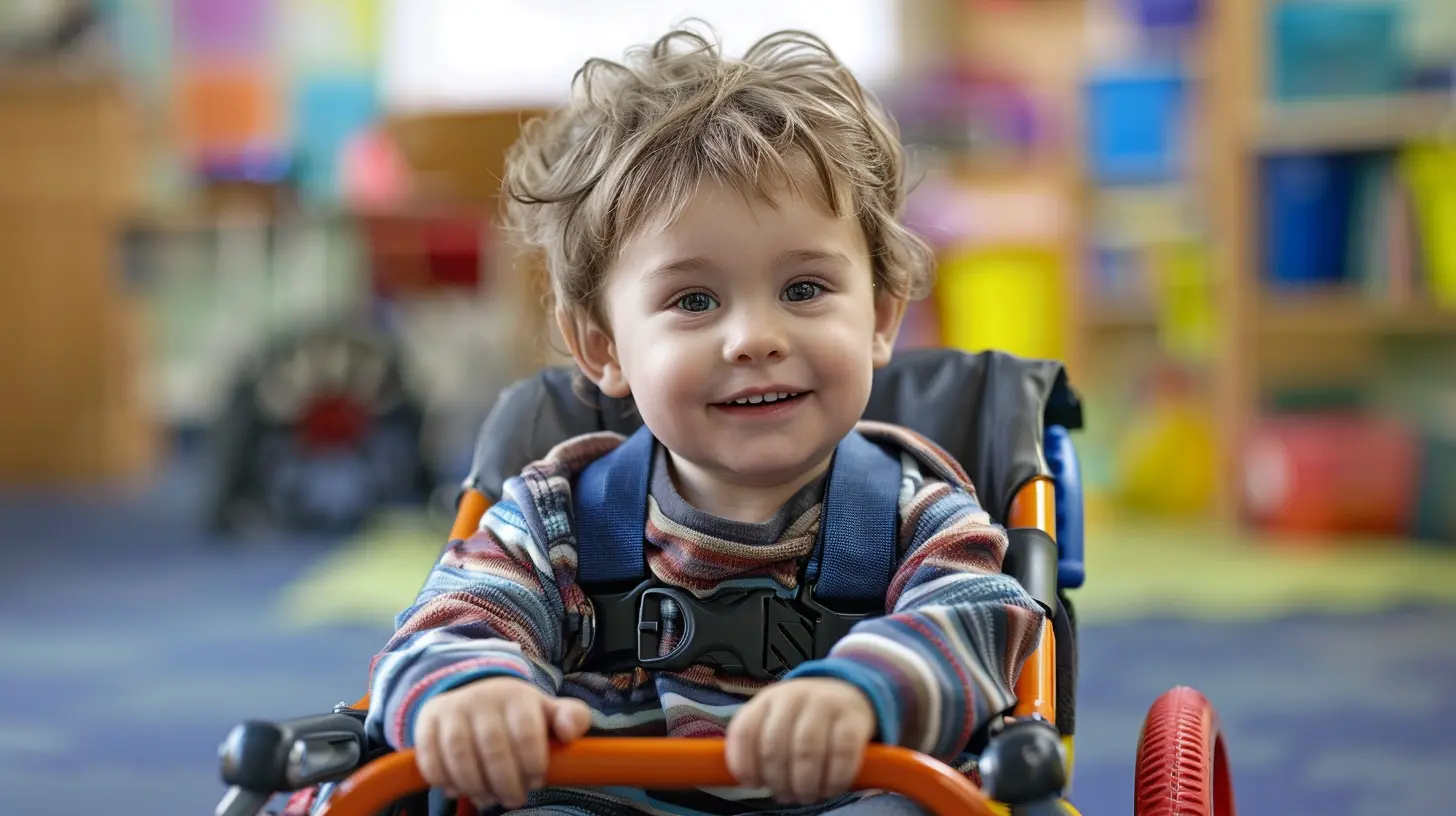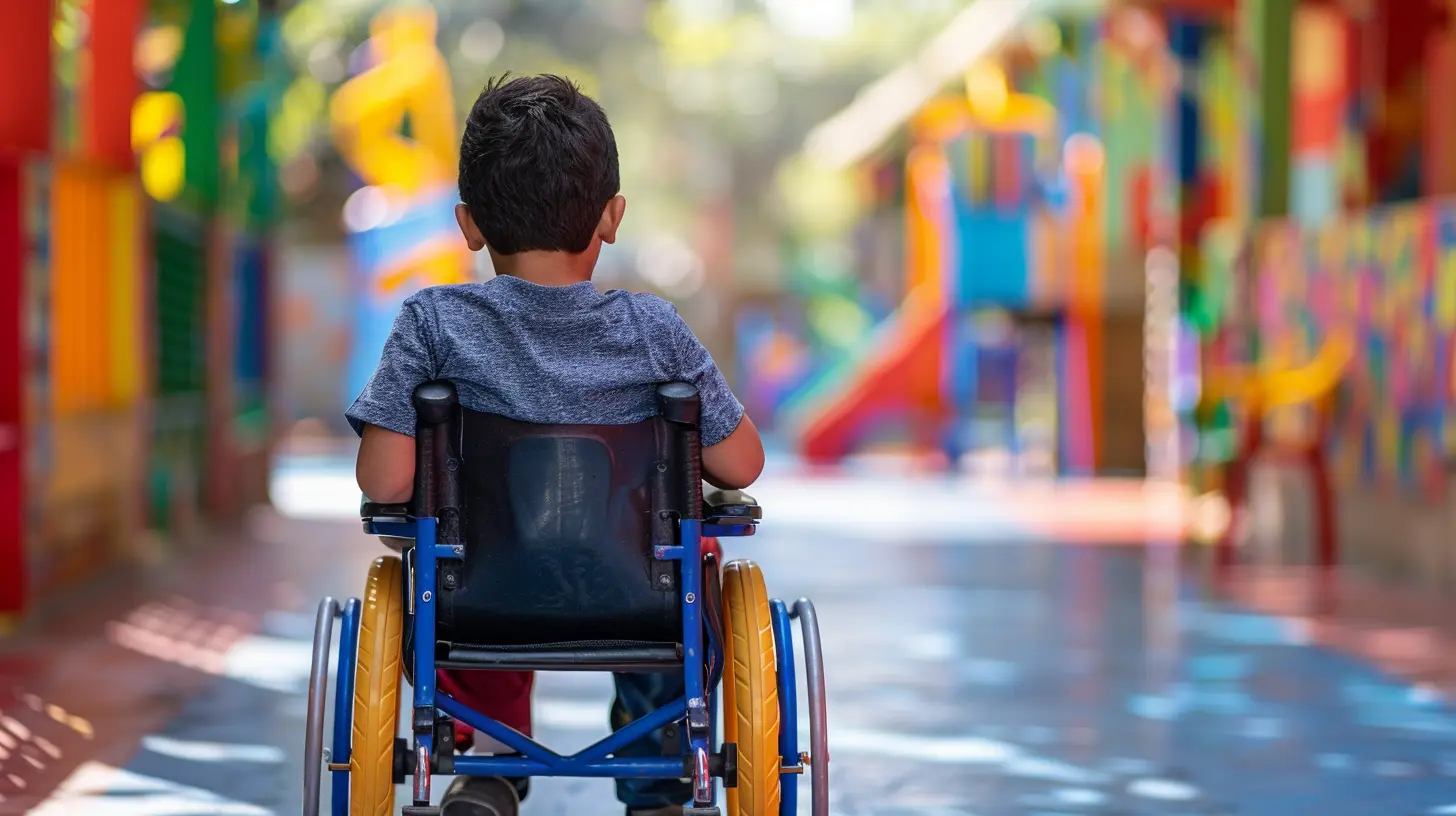Early Intervention: Why It’s Crucial for Children with Developmental Delays
29 May 2025
When it comes to child development, time is of the essence. Every parent hopes their child will hit milestones like crawling, walking, and talking right on schedule. But what happens if progress seems slower than expected? That’s where early intervention comes in.
If a child shows signs of developmental delays, waiting to see if they’ll "grow out of it" isn't always the best approach. In many cases, starting support early can make a world of difference in a child's long-term success.
So, why is early intervention so crucial? Let’s break it down.

What Is Early Intervention?
Early intervention refers to specialized support services designed to help children develop essential skills during their most formative years—typically from birth to age three. These services can include:- Speech therapy
- Occupational therapy
- Physical therapy
- Behavioral therapy
- Special education programs
The goal? To give children the tools they need to overcome challenges before they become bigger hurdles.

Why Early Intervention Matters
1. The Brain Is Most Adaptable in Early Childhood
In the first few years of life, a child's brain works like a sponge—absorbing information, forming connections, and building neural pathways. This period, often called the "critical window", is when the brain's ability to adapt is at its peak.When children receive early intervention, their brains can rewire and develop new skills more easily than if intervention starts later. Think of it like trying to mold soft clay—it's much easier to shape when it's fresh, rather than waiting until it's hardened.
2. Prevents Minor Delays from Becoming Major Challenges
A slight speech delay might not seem like a big deal at first. But if left unaddressed, it can lead to struggles with communication, social interaction, and even self-esteem.Early intervention catches these delays early, providing the necessary support before they snowball into bigger problems. A child who struggles to communicate at age two might struggle with reading at age six—but with early speech therapy, they might avoid that struggle altogether.
3. Boosts Confidence and Social Skills
Think about how frustrating it is when you can't express yourself. Now imagine feeling that frustration as a toddler who doesn’t have the words or skills to communicate effectively.Children with developmental delays often face social challenges, but early intervention helps bridge that gap. By improving communication, motor, and cognitive skills early on, kids gain confidence in their abilities—making it easier for them to connect with peers, build friendships, and navigate social settings.
4. Supports Families and Caregivers
Raising a child with developmental delays can be overwhelming. Parents often feel lost, unsure of what’s "normal" and whether they should be concerned.Early intervention programs equip families with the right tools and strategies to support their child's growth at home. Rather than playing a guessing game, parents receive expert guidance on how to encourage language development, improve motor skills, and handle behavioral challenges effectively.
5. Better Long-Term Outcomes
The benefits of early intervention don’t just stop by preschool. Research shows that children who receive timely support:- Perform better in school
- Develop stronger social skills
- Are less likely to require special education later
- Gain greater independence as they grow
Simply put, early intervention sets children up for lifelong success. It's the difference between giving kids a head start or having them play catch-up later.

Signs That a Child May Need Early Intervention
Every child develops at their own pace, but certain signs might indicate a delay that needs attention. Some common red flags include:Speech & Language Delays
- Not babbling by 12 months- No first words by 16 months
- Difficulty understanding simple instructions
- Trouble forming sentences by age three
Motor Skill Delays
- Not sitting up by six months- Not walking by 18 months
- Difficulty holding objects or using utensils
Cognitive & Social Delays
- Lack of eye contact or engagement with others- Trouble recognizing familiar faces
- Avoiding interaction with children or caregivers
If you notice any of these signs, it’s always best to consult a pediatrician or specialist rather than "wait and see."

How to Get Started with Early Intervention
If you suspect your child has a developmental delay, here’s what you can do:1. Talk to Your Pediatrician – Express your concerns and ask for a developmental screening.
2. Request an Early Intervention Evaluation – In many places, state-funded programs offer free assessments.
3. Connect with Specialists – Based on the evaluation, experts will recommend the right therapy or support services.
4. Engage in Home Strategies – Therapists often provide exercises and techniques that parents can incorporate into daily routines.
Many intervention programs are free or low-cost, especially for children under three. So there's no harm in getting an evaluation—even if it just offers peace of mind.
Common Myths About Early Intervention
"They’ll Grow Out of It"
While some children do catch up on their own, many don’t. If a developmental delay is present, early support can only help—not harm."It Means Something Is Wrong with My Child"
Developmental delays don’t mean a child isn’t smart or capable. It just means they need a little extra help in certain areas—just like wearing glasses helps with vision."I Should Wait Until They Start School"
By the time a child enters school, they may have already missed critical brain development opportunities. The earlier, the better.
Final Thoughts
There’s no downside to early intervention—only potential benefits. If a child needs extra support, why wait? The sooner they receive help, the more progress they can make.Whether it’s speech therapy, occupational therapy, or behavioral support, early intervention opens doors for a brighter future. And what parent wouldn’t want to give their child every possible advantage?
If you have concerns about your child's development, trust your instincts and seek guidance. A little help early on can make a lifelong difference.
all images in this post were generated using AI tools
Category:
Special EducationAuthor:

Anita Harmon
Discussion
rate this article
3 comments
Odessa Elliott
Timely support transforms children's futures.
June 11, 2025 at 11:23 AM

Anita Harmon
Absolutely! Timely support can significantly enhance development and open doors for brighter futures. Thank you for your insight!
Solstice Beck
Early intervention transforms potential into progress; timing is everything.
June 7, 2025 at 3:48 AM

Anita Harmon
Thank you for highlighting the importance of timing in early intervention! It truly plays a critical role in unlocking children’s potential and fostering meaningful development.
Amber Hubbard
This article beautifully highlights the power of early intervention in shaping futures. Recognizing and addressing developmental delays early can pave the way for positive growth and success. Every child deserves the chance to thrive—let’s champion their potential together!
June 6, 2025 at 3:04 AM

Anita Harmon
Thank you for your thoughtful comment! I completely agree—early intervention is vital for unlocking each child's potential. Together, we can make a difference!



